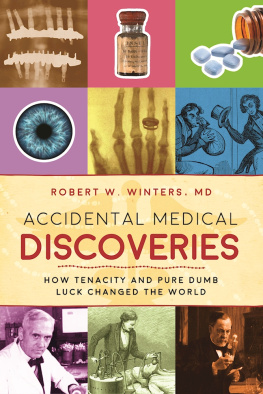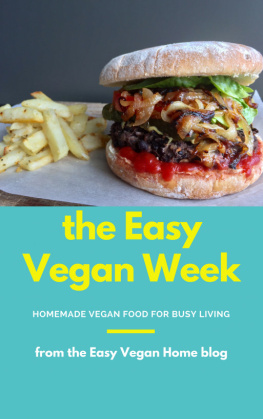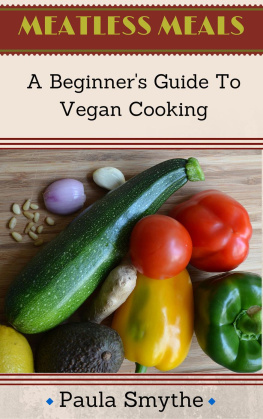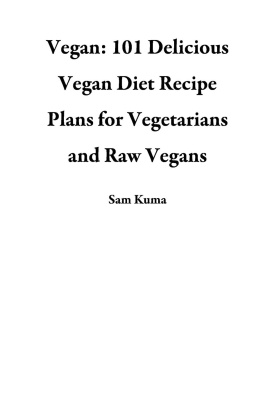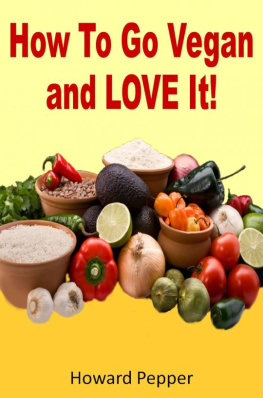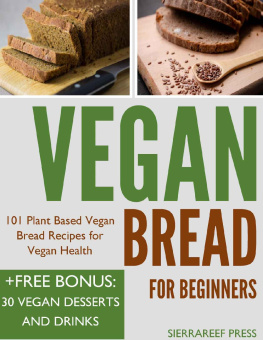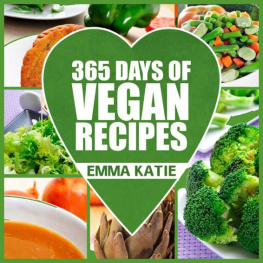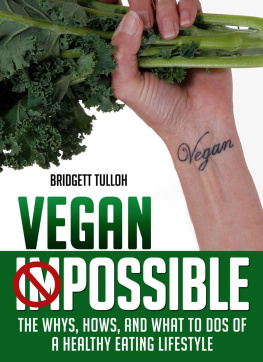Ed Winters
THIS IS VEGAN PROPAGANDA
(And Other Lies The Meat Industry Tells You)
Contents
Part One
Its a Question of Morality
Part Two
Playing with Fire
Part Three
Breaking Down the Barriers
About the Author
Ed Winters is a compassionate activist and vegan educator from the UK, widely known for his viral online content. He is a prolific public speaker who has been invited to schools, universities and businesses across the world. Ed has given speeches at over a third of UK universities and at Ivy league colleges, including as a guest lecturer at Harvard University in 2019 and 2020. He has also spoken at major companies including Google on numerous occasions, Facebook and The Economist.
Ed has also given two TEDx talks that have amassed over 2 million views online. His viral university speech You Will Never Look at Your Life in the Same Way Again has 35 million views online.
Introduction
When you read the word vegan, what are the first thoughts that come into your head? If Id been asked that question eight years ago, I would have told you, Vegans are extremists, with no sense of humour, who should mind their own business and stop forcing their views on people, not to mention theyre arrogant, self-righteous, judgemental and militant. I would then have gone on to say, I have nothing against vegans, I just wish they would stop trying to make other people vegan and respect my personal choice to eat meat. And besides, meat tastes too good to give up.
The word vegan is currently one of the most emotive there is. Love it or hate it, its ability to elicit a response cannot be denied. However, despite the word being so divisive, often very little is known about the enormous impact of animal consumption. So this is not only the book that I wish I could have given myself many years ago when I had a strong opinion of veganism while knowing very little about it or peoples motivations for embracing it, but it is also a comprehensive resource for vegans who want to better understand the arguments that people use against veganism and why they use them, as well as how to respond to them and become more effective advocates in the process.
Its no secret that veganism is growing all over the world and has become one of the most prevalent and discussed social movements of this generation. But while most of us will be aware that the primary motivations for people going vegan and adopting plant-based diets include animal rights, the environment, pandemic prevention and personal health, often little is known about the complexity and true scale of these issues, which is exactly what this book aims to do: lay out the enormity of the injustice that is animal exploitation.
Every time we eat, we have the power to radically transform the world we live in and simultaneously contribute to addressing many of the most pressing issues that our species currently faces: climate change, infectious disease, chronic disease, human exploitation and, of course, non-human exploitation. Every single day, our choices can help alleviate all of these problems or they can perpetuate them.
I think its important to state that conversations about veganism and animal rights can often lead to feelings of judgement, but the purpose of this book is not to demonise people who eat meat, dairy and eggs, or who work in the animal industries. Quite the contrary in fact. I dont for one moment believe that they are all bad people. Good people can do bad things. Each and every one of us is a testament to that. I also believe that knowledge is power and when we are given both sides of the story we are then able to make informed decisions for ourselves. The problem is that we havent been given both sides of the story the reality of animal farming is hidden from us or disguised by marketing labels and industry PR.
Ironically, while the animal farming industries hide the reality of how animal products are produced behind labels, they also disregard the other side of the story as simply being vegan propaganda. This catch-all phrase is used to discredit anything that challenges them, no matter how strong the evidence or solid the moral argument. I have written this book to offer this other side, supported by scientific studies, which are all referenced in case you want to find out more. I hope that it will equip you, the reader, with the knowledge to make informed decisions about your own actions and that it will make you feel empowered, because we all have a say in influencing what the future will look like. It is the amalgamation of six years of research, reading and conversations that I have had with people from every part of the spectrum, from slaughterhouse workers and farmers to animal rights philosophers, environmentalists and everyday consumers. It has been a journey that has so far involved me debating veganism on live television in front of millions of people, giving hundreds of speeches and lectures, and visiting farms and slaughterhouses around the world.
However, this book goes beyond just making the case for veganism and explores the psychological and social mechanisms behind why we do what we do, highlighting and exposing the societal and cultural constructs that create passive complicity in industries that, on deeper evaluation, contradict the fundamental values that we live by. In essence, this book discusses a myriad of ideas and themes in the hope of empowering vegans to feel more educated and confident in discussing why they are vegan, while at the same time being a comprehensive resource for those looking to learn more about veganism. I hope this prompts questions and highlights information that can in turn act as catalysts for self-reflection that ultimately leads to us challenging our own habits, unconscious or otherwise.
Some of the information and topics I cover in this book make for uncomfortable reading. Realising the scale of mass suffering and death that is relentlessly occurring every second of the day is by far the hardest aspect to face. To put it into perspective, it is estimated that globally around 220 million land animals are killed for food every day, Every. Single. Day. That means that somewhere between 28,000 and 73,000 animals are killed every second, a completely incomprehensible number. When we talk about animal exploitation, the scale is absolutely staggering. But its not just the scale, its the practices that are carried out on these individuals, each with their own experiences and emotions, all suffering as a result of what we are doing to them. Non-human animals are the oppressed majority, each and every one of them at the mercy of our dominance, intellect and strength.
We have created a form of tyranny over the natural world, pillaging, extracting, using and destroying as we please. We have placed ourselves above the ecological life support systems that our species depends on for survival and exploited them for our own short-term benefit, cutting down forests and polluting rivers and oceans. We have destroyed millions of years of evolution in the blink of an eye, quite literally bulldozing our way around this finite planet. For all of our intelligence, we have still failed to grasp the simple reality that we need the planet more than the planet needs us.
And as we have killed more and more animals, and destroyed more and more of the world, we have become sicker and sicker. While some people die early from having too much, others die from having too little. Preventable chronic diseases and preventable world hunger are growing in tandem, and people are suffering because of our woefully illogical, unfair and unsustainable food system. Humanity is at a crossroads: we can either continue as we currently are or set off in a new direction, learning from our previous mistakes and working for the benefit of all life.



